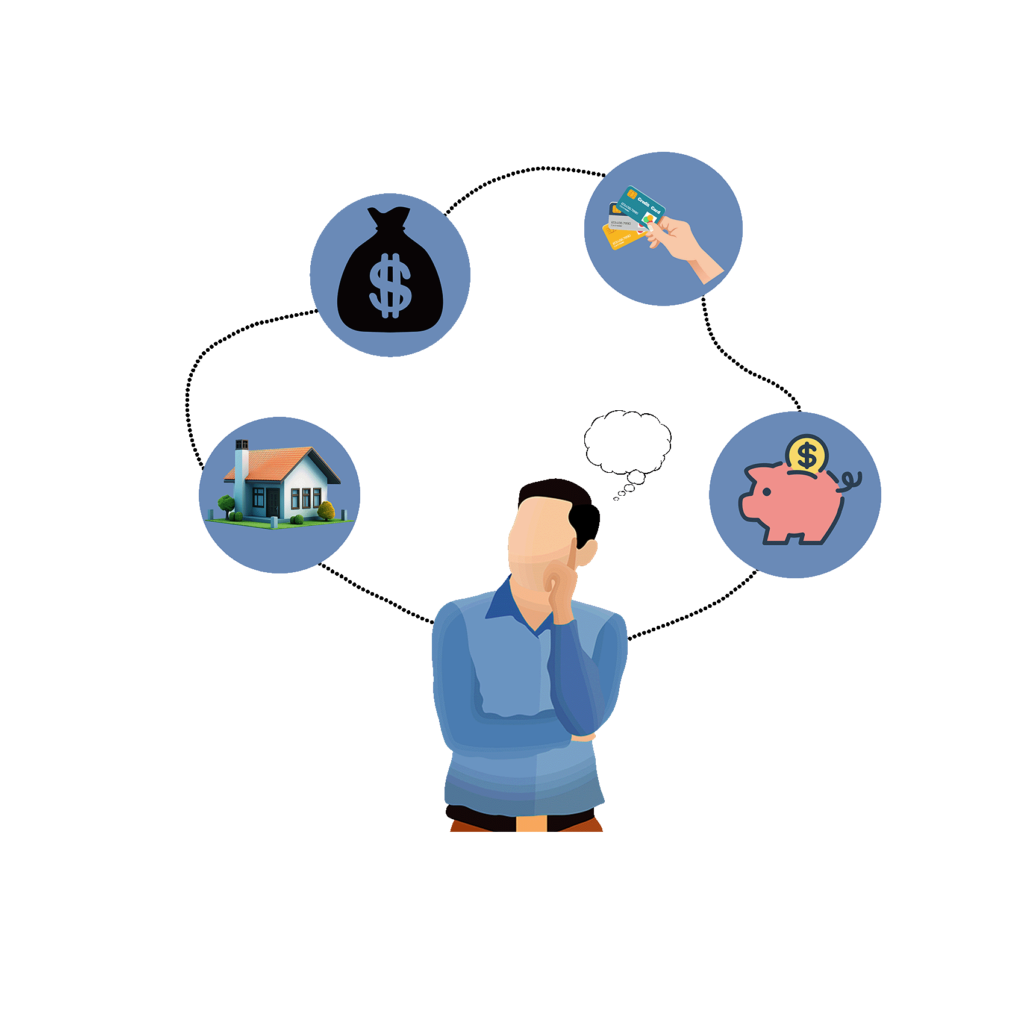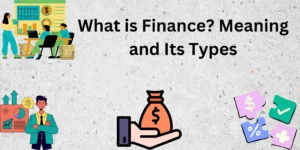Personal Finance
Personal finance is all about managing your money wisely to reach financial stability and achieve your future goals. It involves things like:
Budgeting: Monitoring your earnings and outlays
to prevent going over budget.
Savings: Savings refers to setting aside money
from your income for later use instead of spending
it all immediately.
Investing: Increasing the value of your funds by
purchasing stocks or other assets.
Retirement Planning: To ensure that you will have enough money to live on once you retire from work, retirement planning entails investing and saving money today.
By taking these steps, you can take charge of your finances, lessen financial stress, and ensure that your money will benefit you in the long run

Personal Finance
Personal finance is all about managing your money wisely to reach financial stability and achieve your future goals. It involves things like:
Budgeting: Monitoring your earnings and outlays to prevent going over budget.
Savings: Savings refers to setting aside money from your income for later use instead of spending it all immediately.
Investing: Increasing the value of your funds by purchasing stocks or other assets.
Retirement Planning: To ensure that you will have enough money to live on once you retire from work, retirement planning entails investing and saving money today.
By taking these steps, you can take charge of your finances, lessen financial stress, and ensure that your money will benefit you in the long run
Blogs
Frequently Asked Questions (FAQs)
What is Personal Finance?
Personal finance is how you manage your money. It includes things like budgeting, saving, spending, and planning for the future. The goal is to make smart choices with your money so you can pay bills, save for big purchases, and be prepared for emergencies or retirement.
Why is Personal Finance Important?
Personal finance is important because it helps individuals achieve financial stability, security, and success. It enables them to make informed decisions about their money, achieve their financial goals, and build a better financial future.
Why is Personal Finance Dependent upon your behavior?
Personal finance is dependent on your behavior because how you manage your money is influenced by your habits and choices. Good habits, like budgeting and saving, can lead to financial success, while poor choices, like impulsive spending or ignoring debt, can create financial problems. Your mindset and actions directly impact your ability to achieve your financial goals.
What is the main goal of personal financial planning?
The main goal of personal financial planning is to manage your money wisely to meet financial goals, such as saving for the future, paying off debt, and being prepared for emergencies or retirement, is the primary objective of personal financial planning. It assists in maintaining control of your finances and securing your financial future.
What are the Personal Finance for beginners?
Personal finance for beginners includes key steps like:
- Budgeting: Track income and expenses to control spending.
- Saving: Build an emergency fund and save regularly.
- Debt Management: Pay off high-interest debt quickly.
- Building Credit: Pay bills on time to maintain a good credit score.
- Investing: Start learning basic investing for long-term growth.
- Setting Goals: Plan for future goals like buying a house or retirement.
What are the 5 steps in personal finance?
The 5 steps in personal finance are:
- Know Your Finances: Understand your income, expenses, and debts.
- Set Goals: Decide what you want to achieve, like saving or paying off debt.
- Make a Budget: Plan how to spend and save your money wisely.
- Save for Emergencies: Build a fund for unexpected expenses.
- Invest for the Future: Grow your money through investments for long-term goals like retirement.
Personal Finance
Personal finance is all about managing your money wisely to reach financial stability and achieve your future goals. It involves things like:
Budgeting: Monitoring your earnings and outlays to prevent going over budget.
Savings: Savings refers to setting aside money from your income for later use instead of spending it all immediately.
Investing: Increasing the value of your funds by purchasing stocks or other assets.
Retirement Planning: To ensure that you will have enough money to live on once you retire from work, retirement planning entails investing and saving money today.
By taking these steps, you can take charge of your finances, lessen financial stress, and ensure that your money will benefit you in the long run
Blogs
FAQs
What is Personal Finance?
Personal finance is how you manage your money. It includes things like budgeting, saving, spending, and planning for the future. The goal is to make smart choices with your money so you can pay bills, save for big purchases, and be prepared for emergencies or retirement.
Why is Personal Finance Important?
Personal finance is important because it helps individuals achieve financial stability, security, and success. It enables them to make informed decisions about their money, achieve their financial goals, and build a better financial future.
Why is Personal Finance Dependent upon your behavior?
Personal finance is dependent on your behavior because how you manage your money is influenced by your habits and choices. Good habits, like budgeting and saving, can lead to financial success, while poor choices, like impulsive spending or ignoring debt, can create financial problems. Your mindset and actions directly impact your ability to achieve your financial goals.
What is the main goal of personal financial planning?
The main goal of personal financial planning is to manage your money wisely to meet financial goals, such as saving for the future, paying off debt, and being prepared for emergencies or retirement, is the primary objective of personal financial planning. It assists in maintaining control of your finances and securing your financial future.
What are the Personal Finance for beginners?
Personal finance for beginners includes key steps like:
- Budgeting: Track income and expenses to control spending.
- Saving: Build an emergency fund and save regularly.
- Debt Management: Pay off high-interest debt quickly.
- Building Credit: Pay bills on time to maintain a good credit score.
- Investing: Start learning basic investing for long-term growth.
- Setting Goals: Plan for future goals like buying a house or retirement.
What are the 5 steps in personal finance?
The 5 steps in personal finance are:
- Know Your Finances: Understand your income, expenses, and debts.
- Set Goals: Decide what you want to achieve, like saving or paying off debt.
- Make a Budget: Plan how to spend and save your money wisely.
- Save for Emergencies: Build a fund for unexpected expenses.
- Invest for the Future: Grow your money through investments for long-term goals like retirement.









